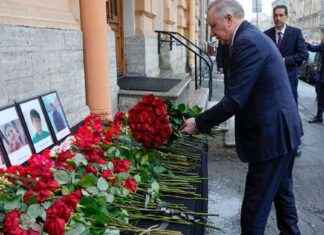After the Stade de France, after Lille, it is in Marseille that the XV of France continues “its” World Cup. For their third outing in the competition, Fabien Galthié’s players face Namibia, Thursday September 21 (9 p.m., France 2), in a Vélodrome stadium which promises to be hot. A week after a mess of rugby which led to a painful victory against Uruguay (27-12), the French aspire to redress the situation.
In the firmament of figures and data governing the life of the Blues is now added the key number of twelve. It corresponds to the number of changes in the starting XV after each match of this World Cup. After fielding a hybrid team – not to say “team B” – against Uruguay, the French staff returned to the typical structure to face the Namibians; and only Cameron Woki, on the second line, Anthony Jelonch, on the third line and the young winger Louis Bielle-Biarrey keep their place from one match to the next.
“We have a vision of playing times, we monitor performances, we work on emulation,” explained the coach, to justify this return to business of the bosses of the XV of France, responsible for putting back the warm-up blue against the modest Namibians – 21st nation in the world, chasing a first victory in the competition in seven editions.
“There is no danger in the house”
With the World Cup stretching over the length of time (from September 8 to October 28), the Blues had the opportunity to turn over and over in their heads their laborious performance against the Teros – undoubtedly the least successful since the start of the mandate of Fabien Galthié. For a week, a well-known shadow of French rugby has been present around the French XV: that of doubt. We perceived this new uncertainty in the comments following the meeting: players spoke of “frustration” at the end of a game marked by the mistakes committed. We saw an unusual tension spread among the staff. Sunday in training, Fabien Galthié scolded the young people from Stade français who came to make up the numbers: “Put me the best players as receivers, stop putting painters on me! »
For a team which has been preparing, since the end of 2019, with a single objective, to win the World Cup, and has the credo of mastering everything that can be mastered, the imperfect meeting against Uruguay left a bitter taste. To the point of eroding the trust acquired over four years of living together? Far from there. Even if they seem less dominant than in 2022, during their grand slam in the Six Nations Tournament, the Blues still display their serenity. “There is no danger at all, we have certainty about our work for four years,” reassured the co-trainer of the French conquest, William Servat, on Tuesday. “We are all aware of what went wrong, but there is no fire in the lake. We won the match,” corroborated second row Thibaud Flament. Like the previous one, crucial, on September 8, against the All Blacks (27-13).
“We know where we are. These first two victories give us the opportunity to build the World Cup as we wish,” continued William Servat. For the latter, the “Latin side” of the Blues made them let down their guard somewhat against the Teros, at the end of an opening match towards which everyone had been planning since 2020. “This match against Uruguay gave us somewhat put the ideas in order,” insisted the former French hooker.
Dealing with steamrollers
It’s up to the Blues to show it against Namibia on Thursday. “A victory is obligatory, we will work hard to win the match and build our victory,” said third row Charles Ollivon on Wednesday. For the first captain of the Galthié era, before thinking of “a card” against a team having conceded seven then eleven tries against Italy and New Zealand, the French must have the objective of “getting out of the match with the banana”. The Blues were studious during the week preceding this meeting against Welwitschias, who, for their part, consider themselves “privileged” to be able to face them.
Engaged in a journey towards the world summit, the XV of France hopes to quickly forget the Uruguayan rut to calmly devote itself to what comes next. “To learn lessons, you have to wait for the important matches,” warned Fabien Galthié.
Saturday at the Stade de France in Saint-Denis (Seine-Saint-Denis), Ireland and South Africa will cross swords in the second real shock of the World Cup, the loser of which should be the opponent of the French in the quarterfinals. Two teams whose steamroller performances have impressed since the opening of the competition. But comparison is not right: “It’s quite simple: Ireland wins its matches, South Africa too, and us too,” underlined French general manager Raphaël Ibañez on Wednesday. Another way of saying that the doubts born during the group stage will be nothing more than dust if the Blues rise to the occasion during the major meetings to come.






